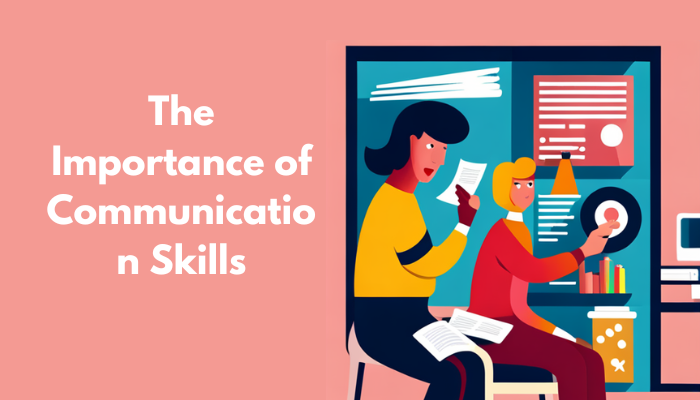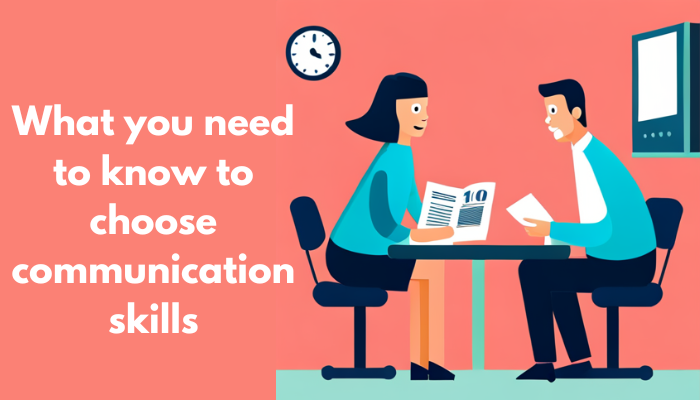This is an important skill in the world of global connection. Being able to communicate clearly and listen actively can have a big impact, whether you’re talking with coworkers, speaking in front of clients or seeing friends. Read on to discover the fundamental communication skills in an actionable, easy-to-follow manner with examples that are related.
Effective Writing Skills

But well communication entails more than just speech, it involves connection. Good Communication – One of the core values in developing trust, resolving conflict and provides opportunity for collaboration. Mastering communication allows you to express your thoughts concisely and persuasively, which can increase the chances of achieving what you want.
Verbal communication consists of Humankinds first form-meaning voice box.
When you use words to express your message, it is called verbal communication. Not only what you say, but how you say it. Tone of voice, cadence and enunciation can have an impact on the recipient receive what it is delivered. II) Practice to speak more clearly and confidently II_Prepare for good verbal communication
Non-Verbal Communication Is a Weapon
This is where your body language, facial expressions and other nonverbal communication comes into play. Such cues will help either to reinforce or contradict your message. Understanding and awareness of your own non-verbal signals, as well as decoding the cues others give off can only increase the chances in increasing your communication prowess.
Active Listening Skills
Listening is not just about listening the audible proponents of speech but knowing even more than what could be heard as it involved in active listener. Demonstrate this by looking at the speaker, nodding and responding to something that they have just said. Turn what they say into a question and show that you are listening.
Empathy in Communication Building.(Continue..)
Empathy When you recognize and experience the feelings of others. Doing this helps you understand other people’s frame of reference, so they can be thoroughly helped. Human beings communicate at a level of empathy and it leads to better understanding, building relationships that are stronger as well dealing with conflicts in much effective way.
Clarity and ConcertEase of the Topic
Clear and concise communication helps all to avoid misconceptions, mistakes or redundancies in the message sent. Do not include jargon or use overly technical language. Instead, keep it to the point and break down your concepts using basic terminology I.e. use simple words with short sentences
A Kubler-Ross Model for Persuasive Communication
Whether you want to persuade a client to use your product or convince another department that they should put their resources into the project, persuasion is an extremely valuable communication skill. Utilize powerful and valid rationale, emotions, as well as evidence to make your case 6
The Impact of Feedback
Positive feedback is necessary for growth in the personal and professional spheres. Provide descriptive feedback targeted at behavior, with a direction for how to make things better. Likewise, learn to accept criticism and take it constructively so that you can improve your communication skills.
Concluding words-Going beyond the language barrier and communicating.
Effective communication is possible when there are no barriers. These could be language differences, cultural misunderstandings or emotional biases. Overcoming These Barriers is the key to effective Communication in different Scenarios.
How Technology Has Influenced Communication
The manner in which that we speak has essentially been altered by technology. Whether it be from emails to video calls, knowing how to use different communication tools properly is important. Whether you are writing an email or in a virtual meeting, keep to the point and remain professional.
Strengthen your communication I calligraphy
A key to an effective communication, is Confidence. Spend time in front of the mirror or play-act with friends and family to develop confidence. Always remember that all are human, and each conversation is a chance to grow.
The Value of Adaptability
Being adaptable in your communication means being able to adapt and change the way you communicate for different situations or audiences Communicating differently to a room full of professionals and an audience comprised entirely of children can help you cut through with your message in simpler ways.
Building cultural competency
Cultural competency is the ability to understand and recognize the norms, values of any culture. By understanding cultural differences, we can avoid misunderstandings and have more efficient communication due to our global world.
FAQ
Question: What are the most important communication skills people can learn?
Top QuestionsQ: What Communication Skills Should I Develop And WhyAre They A *THE* Critical Skill To Have? There are seven basic types, and learning these can greatly improve how you communicate both personally and professionally.
A: What kind of things should I be doing to train my speaking?
Answer: Concentrate on speaking clearly and with authority in order to enhance your verbal aspect. Practicing how you sound -how fast or slow, your tone and voice clarity will be an added advantage. This can be a simple solution such as doing public speaking regularly or getting involved in an organization like Toastmasters.
Q: How Important Is Body Language in Communication?
A: Nonverbal communication is key since it can either underscore or repudiate what you are asserting verbally like body language, facial expressions and gestures. What you should be on the lookout for and how to interpret others non-verbal communication can raise your effective conversation abilities.
Q: What makes active listening so important?
A: Opening your ears is important because it helps you look connected and interested in that conversation. This includes understanding what the speaker wants to communicate, making eye contact with them, nodding your head when appropriate; asking questions for better clarification and finally giving feedback that fits.
Q: How to Bridge Communication gaps in forced communication?
Q: Finding solutions to common problems such as language, culture and emotional biases is how you combat communication barriers. Whether this means you need to adjust your form of communication or not, keeping these barriers in mind should lead to more effective interactions.
Q: How to provide feedback and how to receive it best?
A: Give us feedback in a constructive way, centered around specific behaviors that can be changed. Always be polite and courteous. When you get feedback, be receptive and look at it as a chance to learn how to improve your communication.
A: Cultural sensitivity enhances communication in what ways?
A: Cultural sensitivity is knowledge of and respect for different cultural norms, values, lifestyles etc. Being conscious of these differences can help prevent misunderstandings and improve communication (especially amidst a diverse or global audience).







Your dedication to excellence is evident in every aspect of your work. You consistently set a high standard for everyone.
Thank you very much for your feedback